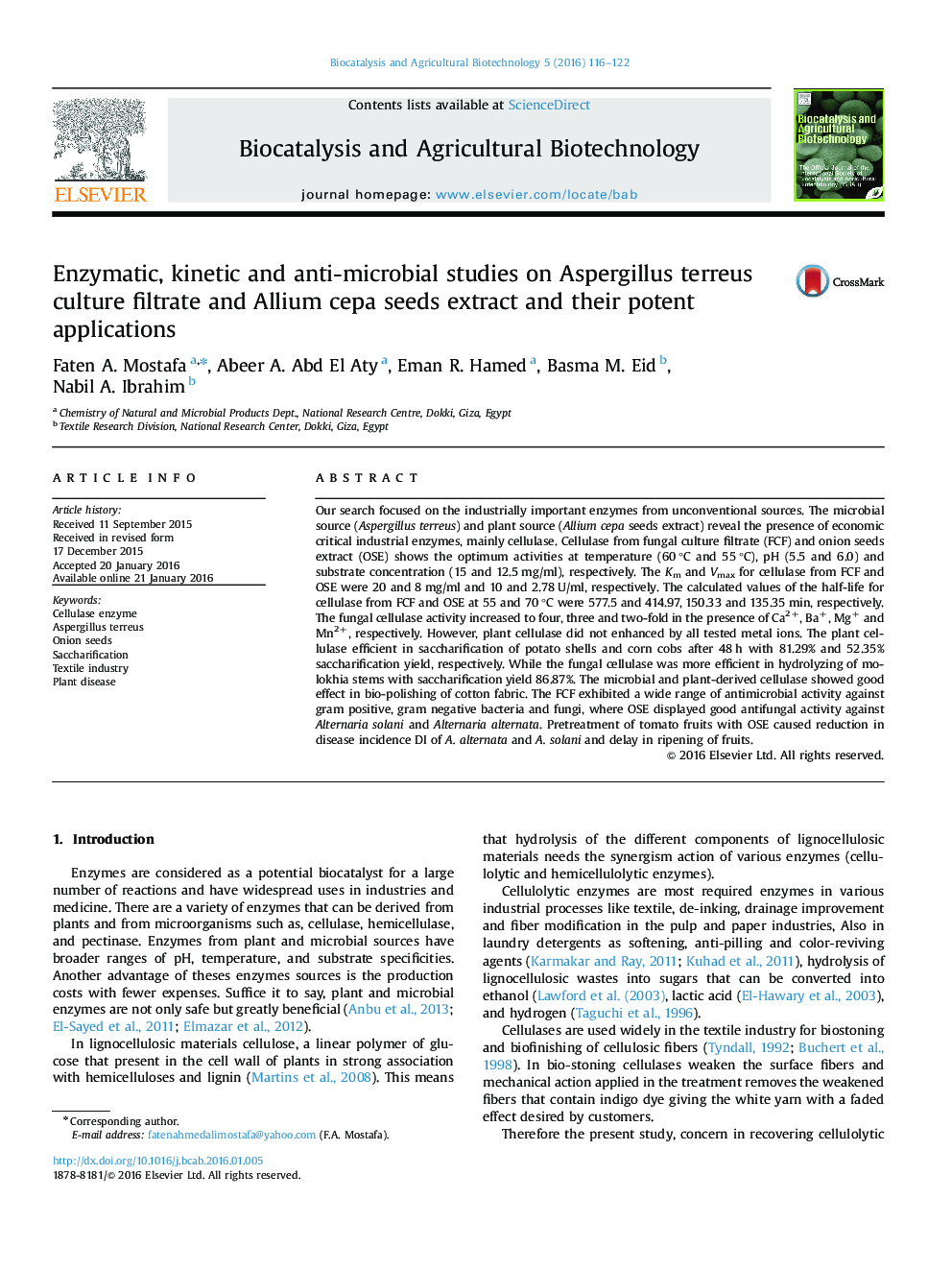| Article ID | Journal | Published Year | Pages | File Type |
|---|---|---|---|---|
| 2075360 | Biocatalysis and Agricultural Biotechnology | 2016 | 7 Pages |
Our search focused on the industrially important enzymes from unconventional sources. The microbial source (Aspergillus terreus) and plant source (Allium cepa seeds extract) reveal the presence of economic critical industrial enzymes, mainly cellulase. Cellulase from fungal culture filtrate (FCF) and onion seeds extract (OSE) shows the optimum activities at temperature (60 °C and 55 °C), pH (5.5 and 6.0) and substrate concentration (15 and 12.5 mg/ml), respectively. The Km and Vmax for cellulase from FCF and OSE were 20 and 8 mg/ml and 10 and 2.78 U/ml, respectively. The calculated values of the half-life for cellulase from FCF and OSE at 55 and 70 °C were 577.5 and 414.97, 150.33 and 135.35 min, respectively. The fungal cellulase activity increased to four, three and two-fold in the presence of Ca2+, Ba+, Mg+ and Mn2+, respectively. However, plant cellulase did not enhanced by all tested metal ions. The plant cellulase efficient in saccharification of potato shells and corn cobs after 48 h with 81.29% and 52.35% saccharification yield, respectively. While the fungal cellulase was more efficient in hydrolyzing of molokhia stems with saccharification yield 86.87%. The microbial and plant-derived cellulase showed good effect in bio-polishing of cotton fabric. The FCF exhibited a wide range of antimicrobial activity against gram positive, gram negative bacteria and fungi, where OSE displayed good antifungal activity against Alternaria solani and Alternaria alternata. Pretreatment of tomato fruits with OSE caused reduction in disease incidence DI of A. alternata and A. solani and delay in ripening of fruits.
